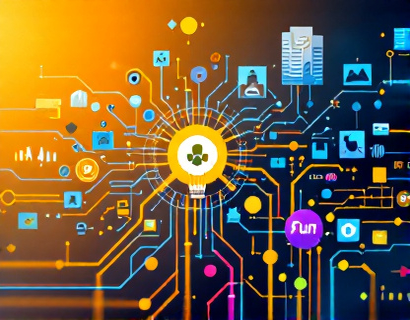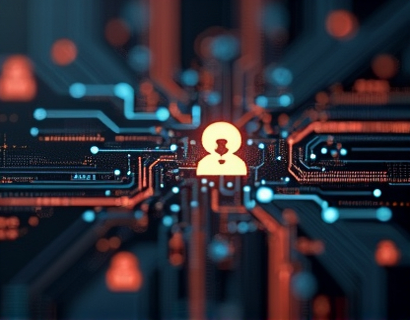Transforming Education with AI-Powered Chatbots: A Comprehensive Guide for Students, Families, and Educators
The integration of artificial intelligence in educational settings has opened new avenues for learning, making knowledge more accessible and personalized than ever before. Among these innovations, AI-powered educational chatbots stand out as a transformative tool, offering specialized insights tailored to the needs of students, families, and educators. This article delves into the capabilities and benefits of these chatbots, focusing on how they deliver industry-specific knowledge and services through verified content, ensuring a safe and enriching educational experience for all users.
Understanding AI-Powered Educational Chatbots
AI-powered educational chatbots are sophisticated software applications designed to simulate conversation with human users through natural language processing and machine learning algorithms. These chatbots are programmed to understand and respond to a wide range of queries, providing information, guidance, and support in real-time. In the context of education, these chatbots serve as virtual assistants that can answer questions, offer explanations, and even facilitate learning processes.
Specialized Insights for Students
For students, AI chatbots represent a valuable resource that can enhance their learning experience. These chatbots can provide instant answers to academic questions, helping students overcome obstacles and deepen their understanding of complex topics. The specialized nature of these chatbots means they can offer insights specific to various subjects and levels of education, from elementary to higher learning. For instance, a student struggling with advanced calculus concepts can engage with the chatbot to receive step-by-step explanations and practice problems, thereby reinforcing their learning.
Support for Families
Families play a crucial role in a student's educational journey, and AI chatbots can be an invaluable asset in this regard. Parents and guardians can use these chatbots to stay informed about their child's progress, understand the curriculum, and find resources to support learning at home. The chatbot can provide updates on assignments, offer tips for effective study habits, and even suggest educational activities that align with the child's interests and learning style. This keeps families engaged and supportive, creating a conducive environment for academic success.
Resources for Educators
Educators are another key group that can benefit significantly from AI-powered chatbots. Teachers can leverage these tools to gain insights into effective teaching strategies, manage classroom dynamics, and stay updated on the latest educational research and technologies. The chatbot can assist in lesson planning by suggesting activities and materials tailored to specific learning objectives. Additionally, it can help in identifying areas where students may need extra support, allowing teachers to intervene proactively and provide targeted assistance.
Ensuring Content Verification and Safety
One of the most critical aspects of AI chatbots in education is the assurance of content verification and safety. Educational institutions and families are increasingly concerned about the accuracy and reliability of information sourced from digital platforms. To address this, the chatbots are designed to provide content that is thoroughly verified for accuracy and relevance. This involves cross-referencing information from credible sources and adhering to educational standards. Moreover, these chatbots are developed with child safety in mind, ensuring that interactions are appropriate and free from harmful content. For younger users, a child-friendly version of the chatbot is available, with simplified language and content tailored to their age group.
Enhancing Learning Through Interactive Engagement
The interactive nature of AI chatbots makes them an excellent tool for enhancing engagement and motivation in learning. Students can ask questions, participate in quizzes, and receive immediate feedback, which reinforces their understanding and retention of the material. The chatbot can also adapt to the user's learning pace, offering more challenging content as the student progresses. This personalized approach not only makes learning more effective but also more enjoyable, fostering a love for knowledge and continuous learning.
Industry Insights and Services
Beyond academic subjects, AI chatbots can provide valuable insights into various industries and services, preparing students for the workforce and helping them make informed career choices. For example, a student interested in technology can engage with the chatbot to learn about the latest trends in software development, artificial intelligence, and cybersecurity. The chatbot can offer detailed explanations, real-world applications, and even connect students with professionals in the field for mentorship opportunities. This bridge between education and industry ensures that students are well-equipped with the knowledge and skills needed in the modern job market.
Building a Safe and Educational Environment
The development of AI chatbots for educational purposes is guided by a commitment to creating a safe and educational environment for all users. This involves implementing robust privacy policies, ensuring data security, and providing transparent information about how user data is handled. Educational institutions and parents can trust that the chatbots comply with relevant regulations and standards, such as COPPA (Children's Online Privacy Protection Act), to protect the privacy of young users. Additionally, the chatbots are designed to promote positive interactions, encouraging respectful and constructive dialogue.
Case Studies and Success Stories
Several educational institutions have already integrated AI chatbots into their systems, yielding positive results. For instance, a high school in the United States implemented an AI chatbot to assist students with homework and provide after-school tutoring. The chatbot was programmed to cover a wide range of subjects and was found to significantly improve student performance and engagement. Feedback from students and teachers highlighted the chatbot's ability to explain complex concepts in a clear and accessible manner, as well as its availability outside regular school hours, providing additional support when needed.
Another example is a university that used an AI chatbot to support international students adjusting to a new academic environment. The chatbot offered language assistance, cultural insights, and academic guidance, helping these students integrate more smoothly. The chatbot's personalized approach and 24/7 availability made a significant difference in the students' transition, reducing feelings of isolation and enhancing their overall university experience.
Future Prospects and Challenges
As AI technology continues to evolve, the potential for educational chatbots to transform learning is immense. Future developments may include more advanced natural language processing, enabling chatbots to understand and respond to even more complex queries. Integration with virtual and augmented reality could create immersive learning experiences, further enhancing engagement and retention. However, with these advancements come challenges such as ensuring the ethical use of AI, addressing biases in algorithms, and maintaining the quality and relevance of content.
To overcome these challenges, it is essential for developers, educators, and policymakers to collaborate closely. Establishing guidelines and best practices for the development and deployment of AI chatbots in education can help mitigate risks and maximize benefits. Continuous monitoring and evaluation of chatbot performance, along with user feedback, will be crucial in refining these tools to better serve the educational community.
Conclusion
AI-powered educational chatbots represent a significant leap forward in making education more accessible, personalized, and effective. By providing specialized insights, verified content, and a safe learning environment, these chatbots cater to the diverse needs of students, families, and educators. As the technology continues to advance, the role of chatbots in education is likely to expand, offering new opportunities for innovation and improvement. Embracing this technology can lead to a more inclusive and dynamic educational landscape, where learning knows no bounds.











































